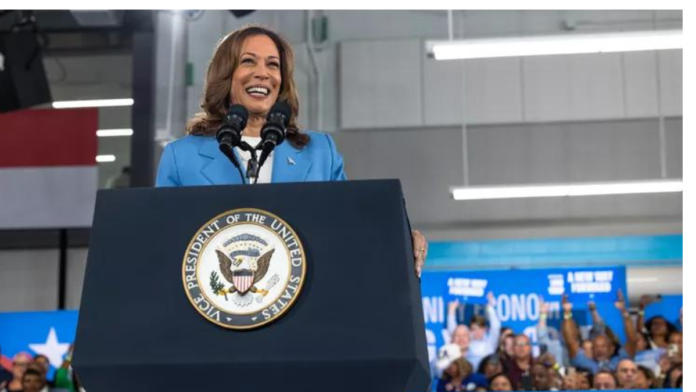The possibility that Vice President Kamala Harris will be the first Indian-American to hold the office of US President makes Indians perhaps proud. Indian-Americans do significantly better than the average American in the areas of academia, finances, and the workplace. That’s a positive thing.
The United States gains a great deal from the Indian diaspora, from rocket research in Huntsville, Alabama, to medical care at the Mayo Clinic in Minnesota, to the invention of superconductors in Silicon Valley, California. It’s time for Indian Americans to gain the recognition they so well deserve.
But US-India ties could collapse under a Harris presidency. The Cold War-era foreign policy consensus in Washington has dissipated. Administration after administration has used foreign policy as a political game, from Cuba to Israel to Mexico and Yemen. India, fortunately, was an exception. Since George W. Bush took office in 2001, every administration has worked to strengthen diplomatic, commercial, and military ties between the US and India. Presidents Bush, Obama, Trump, and Biden may have really agreed on one foreign policy issue: the value of India as an ally.
Ironically, Harris might defy that consensus. Following the Democratic Party’s thinly veiled anti-Semitic campaign against Pennsylvania Governor Josh Shapiro, Harris chose Minnesota Governor Tim Walz as her running mate. This choice suggests that either Harris is willing to bow to her party’s most Leftist fringe or she confuses activism on Twitter and Facebook with mainstream issues. It is hardly good news for US-India relations in any case.
Although the Indian-American community is left-leaning, radicalism is not accepted. Harris will therefore defer to those who embrace Hinduphobia, disparage Indian democracy, and support Khalistan separatism rather than the interests of Indian Americans and proponents of strong US-India ties if she follows the lead of the online community.
Similarly, Harris lacks the knowledge, expertise, and motivation to vigorously defend India against the objections of career State Department employees who are inclined to adopt a highly politicized stance on human rights and to accept without question the advice of groups such as Human Rights Watch and Amnesty International. Not only did American politicians and media earlier fall victim to “Bush Derangement Syndrome,” which drove them to the brink, but they also engage in “Modiphobia” now.
Well, Biden’s team has handled the issue. As human rights organizations attempted to attribute the violence in Manipur on religious prejudice rather than long-standing tribal relations, the Biden team calmed vociferous voices who were predisposed to assume the worst. The White House and State Department handled the crisis with a wink and a nod, appeasing irrational activists and online provocateurs without disparaging India, following Prime Minister Justin Trudeau’s accusation that Indian intelligence had killed a designated terrorist from Khalistan on Canadian soil and his suggestion that US analysts thought the same. To its credit, New Delhi weathered the storm by assisting an investigation into which it could have objected.
Regretfully, Harris would resemble Trudeau more than Biden. Even the majority of Democrats in America back Israel’s alliance and acknowledge that the only Jewish state in the world is engaged in an existential conflict with terrorists seeking to exterminate its people. Anticipate the weakest link in the State Department to burst when she gives in to the loudest voices in her party and on the internet, along with her secluded, idealistic Hollywood friends whose only experience traveling abroad is staying in five-star hotels. Without adult oversight, left-leaning State Department bureaucrats will pursue their own political agendas while human rights organizations will be free to distribute misinformation.
Also Read: Is United States responsible for Bangladesh coup?
They will not only take the lies of the pro-Khalistan movement at its value, but they will also believe the worst about abuses that they will see in themselves, which is the suffering that all democracies endure. They will bow to an intellectual society that uses Marxist caste narratives as a justification for rejecting reality and denigrate India’s democracy. They will magnify small episodes into big crises and defer to New Delhi in a manner that Americans and Europeans so frequently do without realizing it. This is because they are unable to see the forest through the trees.
Make no mistake: A Harris victory will bring about the biggest crises in India-US ties since the Clinton-era sanctions and the several betrayals of the late National Security Advisor Henry Kissinger. It may also be a symbolic victory for Indian-Americans and a legitimate cause for pride.



